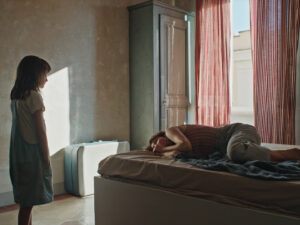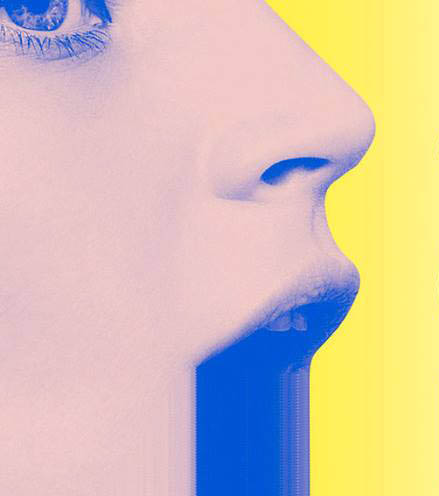Great things happen in Reggio Emilia: from 26 October to 1 November 2022, the 21st edition of the Reggio Film Festival will take place, focusing on the theme of Identity. The program includes short films from all over the world but also author features, meetings and workshops, to investigate gender and cultural, religious and animal identities, in the history of cinema and the arts.
Valeria Di Brisco: How was the Festival born?
Alessandro Scillitani: I remember very well how it all happened. Luca Pignatti (Administration and Curator of Relations with the Institutions of the Festival) and I were young budding filmmakers. There was a Cineclub in Reggio Emilia that organized a small local competition. We participated, we won and then the President (it was a very funny thing) told us: “Very good, I give you the Cineclub!”. Faced with this very cinematic scene, we asked ourselves: “What do we do… Let’s try?”. We had no idea what it meant, but realizing that there was the possibility of having an audience that could follow us, we proposed to the municipal administration to set up a national festival. Many works arrived from Reggio Emilia. Initially, the important contact that should have existed between the public and the Festival was not created, but shortly afterwards, thanks also to the Internet, works from the East began to arrive. Today the Festival is international, a showcase from all over the world containing some Italian works: the paradigm of the event has really changed.
This year the Festival comes of age “for the second time”.
We realized that we “have” an adult who has grown over time and who has an important mission: to preserve, archive, keep a series of works thanks to many volunteers, because every year more than 2000 short films arrive from all over of the world and picking a handful means doing a big job. What remains becomes a gem that you make available for free to a community, this is the lever that makes us say “We must not give up”. Also because the presence of young people makes itself felt… In fact, for several years, together with the Municipality of Reggio Emilia, we have been opening the Festival with a territorial call for young creatives.
So, for those who still don’t know it, you would describe the Reggio Film Festival as a “gem”?
Yes. This is how we are defined by many filmmakers and production houses around the world. For them there is the possibility of being part of a careful selection. Today, unquestionably, we are increasingly inundated with images, which can also be found independently (for example on YouTube): the Festival tries to be a guide that leads back into a conscious path, with works that perhaps also address important issues. This year, the focus is on identity, but the theme, which is still essential because it allows us to donate a specific dress to the Festival, remains partly free: the call to filmmakers is open, all types of works are welcomed. The public can thus enjoy the hard work of someone who, in a competent way, has looked at and selected a lot of material.
Your artistic career is steeped in the documentary field (a great challenge to be able to look at the world with always different eyes). What advice would you give to those who look at your work?
Never be afraid to invent and dare. To invent means to have curiosity, to be ready to also undertake alternative, unusual paths. We have short films by authors who come from Iran who, escaping the impositions of their country’s regime, manage to send their works by e-mail. To give visibility to a work you have to make it participate in festivals, organize theatrical releases, and finally market it as a DVD. The advice is to always be ready for the unexpected, to know how to grasp it and ride it.
The Festival presents not only short films that mix very different ways, techniques and languages, but also a programme of meetings, such as musical events and book presentations. The aspect linked to the arts and the hybridization of languages, which is typical of contemporary art, is therefore very present.
This contamination has existed since the first edition, on the other hand cinema is an art that contains all the others. Multidisciplinarity has always attracted me, being able to approach the art of storytelling from various angles. If we think about it, the short film, as a typology, is seductive: minimum duration, it presents a provocation that you can also comment on. In the same evening you can see shorter shorts, tackle more themes, points of view, present reality with the eyes of different countries. Cinema is the heart of the event, but the presence of the other arts is still essential.
Valeria Di Brisco
Info:
 Thomas Wood, Aly, 2022, courtesy Mireille Productions
Thomas Wood, Aly, 2022, courtesy Mireille Productions
 Béla Baptiste, Anst, 2021, courtesy Jakob Widmann
Béla Baptiste, Anst, 2021, courtesy Jakob Widmann
 Jamsine Trinca, Essere mia madre, 2021, courtesy Cinemaundici
Jamsine Trinca, Essere mia madre, 2021, courtesy Cinemaundici
 Fabien Ara, Féeroce Fairyocious, 2019, courtesy Respiro productions
Fabien Ara, Féeroce Fairyocious, 2019, courtesy Respiro productions
 Giuliano e Irene Mazzanti, Movies, 2022, courtesy Giuliano e Irene Mazzanti
Giuliano e Irene Mazzanti, Movies, 2022, courtesy Giuliano e Irene Mazzanti

is a contemporary art magazine since 1980






NO COMMENT